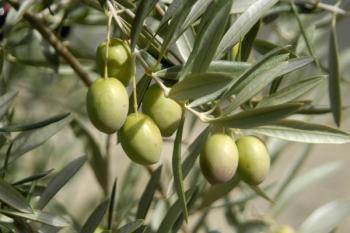
Black Cohosh Adulteration Focus of New Report
Inconsistent nomenclature associated with black cohosh ingredients can play a contributing role in problems such as market adulteration.
Black cohosh adulteration is covered in an in-depth report published in the May–July 2013 issue of HerbalGram, the peer-reviewed journal of nonprofit educational group the American Botanical Council (ABC; Austin, TX). The report, “
Black cohosh is an herbal dietary supplement ingredient most commonly used in products designed to alleviate menopause symptoms.
The report points out that, in the United States, any product bearing the common name “black cohosh” must only be the North American black cohosh species, Actaea racemosa, according to Title 21 of the U.S. Code of Federal Regulations. Companies that do not follow this rule thus violate dietary supplement good manufacturing practices. The rules also state that Chinese species of Actaea (syn. Cimicifuga) must be identified in finished products by the common name “Chinese cimicifuga.”
Despite these distinctions, the report states, there is still confusion in the U.S. marketplace because many materials imported from Chinese suppliers are commonly referred to as “black cohosh” but are actually the Chinese variety, not the North American variety. Other Chinese species (e.g., “Cimicifuga romose,” Cimicifuga foetida, and Vernonia aspera) the report says, are not acceptable as “black cohosh” and “clearly are represented as adulterated products under Title 21 of the CFR.”
Confusion over nomenclature, as well as economic adulteration, means companies should be very careful when analyzing their black cohosh materials. “The sheer volume of offerings, price ranges, varied specifications, and differing species listed as ‘black cohosh extract’ from Chinese sources require that the daunted buyer attempting to source black cohosh work closely with a qualified analytical lab to authenticate black cohosh extracts before securing any supply source.”
The in-depth report discusses other black cohosh market complications, including market economics, history of alleged liver toxicity possibly associated with the adulterants (“causality has remained controversial,” the report says), and analytical tests-including DNA fingerprinting-available to ensure correct identity of black cohosh.
“A combination of the use of several analytical methods may be necessary for proper authentication of black cohosh and to rule out economic adulteration or inadvertent admixture of related species,” the report adds.
The report was written by author/photographer Steven Foster and is the latest in series of educational articles from the ABC-AHP-NCNPR Botanical Adulterants Program. The ABC-AHP-NCNPR Botanical Adulterants Program is a program managed by ABC, the American Herbal Pharmacopoeia, and the National Center for Natural Products Research at the University of Mississippi. The program is also supported by an international collation of more than 100 herb and dietary supplement industry members, third-party analytical laboratories, trade associations, nonprofit educational groups, and more.
“From this point on, there is literally no excuse for any manufacturer or reseller of herbal dietary supplements to purchase raw material or extracts labeled as being ‘black cohosh’ without conducting appropriate analytical procedures to verify and authenticate the herb’s proper identity,” said Mark Blumenthal, founder and executive director of ABC, and editor-in-chief of HerbalGram, in a news release. “In our view, anyone offering for sale the Chinese species of Actaea (primarilyA. cimicifuga, A. dahurica,A. heracleifolia, and A. simplex) as ‘black cohosh’ is most likely knowingly selling adulterated material. This is likely fraud, and such sellers of these adulterants should be prosecuted to the fullest extent of the law.”â¨
Newsletter
From ingredient science to consumer trends, get the intel you need to stay competitive in the nutrition space—subscribe now to Nutritional Outlook.





